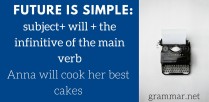1) We use prepositions to change the place of the object or subject in space.
1) At/In/On:
“At” for the placement in space:
- At the top of the page, you will find the title of the lesson.
- Let’s meet at the bus stop at 10 o’clock.
- We had a great time at the football match!
Pay attention!
- At the imaginary dot in space, but at imaginary home/organization.
- At home, we usually take a rest, but at university, we always study hard.
- At work, we always do our best, but at school, we just learn how to study.

“In” for the placement inside some room or closed space:
- I found my key in my son’s room.
- We waited half an hour in that queue!
- Don’t spend too much time in the water.
- Let’s have a walk in the park!
- You will find him in bed; he doesn’t feel good.
- Isn’t that robber in prison now?
“On” for on top of something or on the surface:
- Honey, I am afraid we still have some debris on the floor.
- There is an insect on the ceiling!
- We will put his paintings on the wall in the sitting-room.
- Paris is on the river Seine.
- Do your parents work on a farm?
2) We also use prepositions to speak about time.
2) At/ during / for / in / on /while:
“At” for the time:
- The play starts at 9 o’clock.
“On” for the date:
- We will have a lot of food on New Year’s Eve.
- They will not go to France on 16 February.
- On Sunday I always go to the gym.
“In” for a period of time:
- Jim was working for our company in 1990s.
- You will learn English in one month!
“For” when we need to describe for how long an action happens:
- We have been in Paris for two months.
“During” to say when an action happens (with the noun or the object):
- She started snoring during the play!
“While” to say when an action happens (with the subject and the verb):
- While he was at my place, someone called him.






